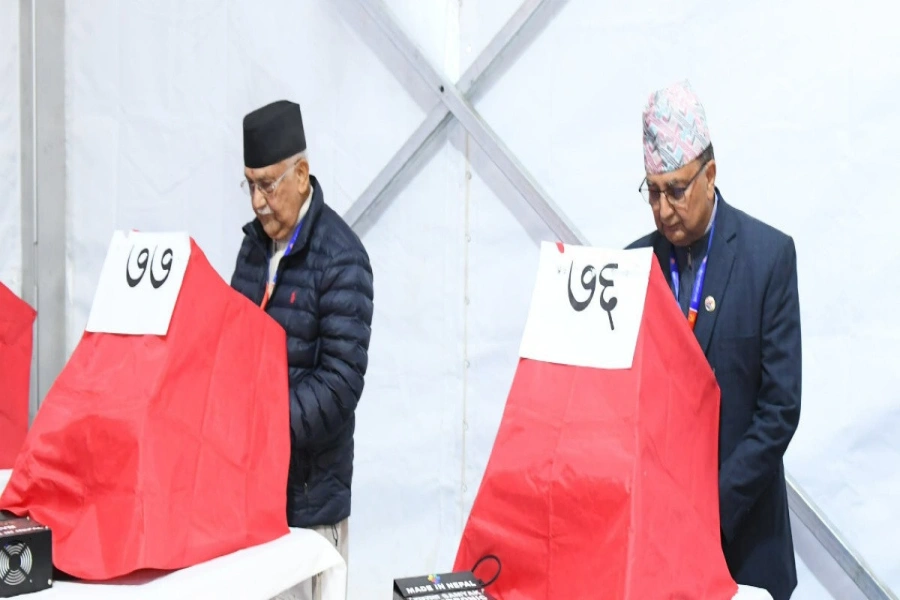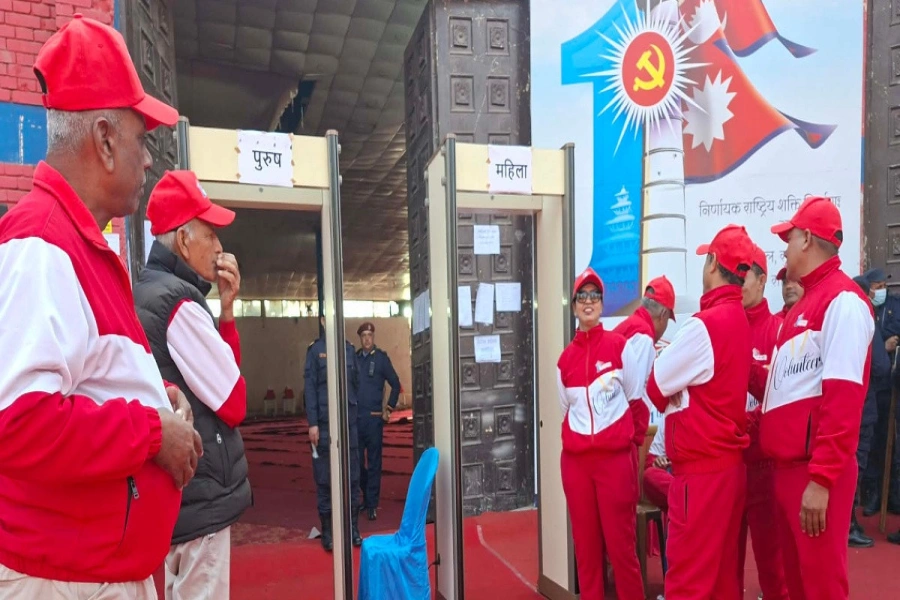English teachers have to develop skills to teach reading. They should research and find out for themselves what works best for their students in the contexts and situations they are in
If you were like me and began learning to read English alphabets in grade four in the 1970s, long English texts and big English books might have scared you and you may not have read much of them.
After learning the ABCs of English alphabets and numbers from one to hundred at Birendra Middle School in Parbat, our English teacher ‘Rudra Sir’ taught us from the prescribed book which included basic greetings and very simple texts. Sometimes the teacher read aloud and asked us to repeat after him and the classroom echoed. I enjoyed the echoes as it gave a break and sounded quite meditative. At other times, after he read the text and translated, he asked us to read and we mostly read aloud. We struggled to pronounce words let alone understanding what literal reading, inferential reading, intensive reading and evaluative reading were. There were no speaking or listening activities. At home I read the lessons and did the homework. The teacher liked my handwriting and the assignment and rewarded me with a fairly large tick mark, which was an ointment to my pain of learning the alien language.
Even after I went to Pashupati Secondary School what I read were mostly the word meanings and the lessons contained in the textbooks. Due to lack of enough reading opportunities at high school, I could not build strong vocabulary because of which I didn’t much understand and getting through intermediate degree with English major was a herculean task. It was more so as I took the annual exams privately without attending colleges.
I don’t clearly remember why I chose English major but my middle school teacher Rudra Bahadur Rimal’s and my high school teacher Chudaraj Timilsina’s encouragement must have led me to take that decision.
Helping children enjoy reading

World of English
As I reflect now I had entered a new world that scared me. I could now neither get out of this hair-raising world nor feel safe and sound in the field. For me to understand a text as Schmitt (2008) says I needed to be able to understand between 95 percent and 98 percent of its words but there were far too many new words and phrases of which I couldn’t make heads or tails.
Anyway, I completed intermediate level and joined Bachelor’s degree. Even during that time my reading ability was limited. In the 45/40-minute class, teachers sometimes came late and even if they came on time, they came with either their notebooks or notes in hands and asked students to copy from the whiteboard or they simply dictated. There were no special activities designed or special lesson plans prepared so that students would be engaged in reading to find the information required. These ‘easy come, easy go’ teachers didn’t seem to take the teaching seriously and students forgot what they lectured or dictated in no time. There were no opportunities for extensive reading as teachers themselves didn’t seem to have read much and the library facilities were poor. If there were any books in the library, they would be course books. Only at Master’s level I garnered courage to face the challenge and read books as much as I could but I was still haunted by the ghost of the past.
Teaching reading
Due to lack of guidance in reading, I read many lessons without much understanding what they were about. I was simply decoding. “In the context of language learning,” says, Penny Ur an Oxford scholar, “reading means ‘reading and understanding.’ A student who says, ‘I can read the words but I don’t know what they mean’ is not, therefore, reading, in this sense, but merely decoding: translating the written symbols into their corresponding sounds.” Reading with understanding is of paramount importance. Otherwise it is like a semi-literate ‘pundit’ chanting Sanskrit mantras and ‘slokas’ which he himself doesn’t understand much.
Giving opportunity to experience reading is of vital importance to students as their experience of reading impacts their participation in wider learning. It has implications on personal enrichment, economic viability and employment prospects, social relationships, leisure activities and cultural identity. Reading in the social and cultural context is closely bound up with concepts of citizenship, civilization and national identity (Davison & Dowson, 1998). A well-read person can experience many things and can be in many places in his imagination. It broadens his horizons and extends his understanding.
I cannot take the time back and restart my reading life from grade four. I should live with reality and do what I can when I can. But for the students now, the English teachers can provide opportunities so that they read both for understanding and pleasure. The English teachers have to have skills to teach reading. It is their job to research and find out for themselves what works best for their students in the contexts and situations they are in. I wish English teachers paid heed to what Yuji Ushiro of University of Tsukuba, Japan says in his article in the book Routledge Encyclopedia of Language Teaching and Learning (2011): “Teachers of reading should be making their students into risk-takers who read texts actively. Otherwise they will not give up the tendency toward word-by-word reading. Inference-type, generalization-type and personal-involvement-type questions are needed to create good readers, rather than fact-finding questions which only make students scan the surface of the text.”
Let there be immeasurable joy and knowledge in reading.
The author is a freelance writer and a life member of Nepal English Language Teachers’ Association (NELTA)
rishirampaudyal@gmail.com






































